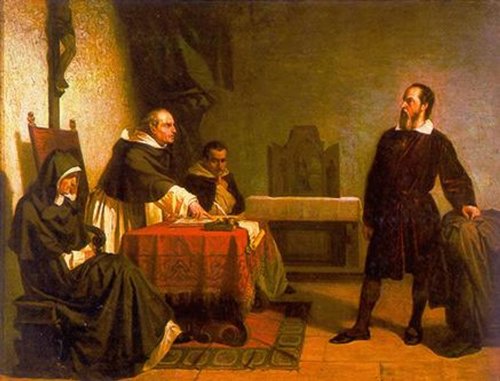LM 3.0 Acceleration and free fall Collection
Tags | |
UUID | 1f2a3c08-f145-11e9-8682-bc764e2038f2 |
3.0 Acceleration and free fall by Benjamin Crowell, Light and Matter licensed under the Creative Commons Attribution-ShareAlike license.

Galileo's contradiction of Aristotle had serious consequences. He was interrogated by the Church authorities and convicted of teaching that the earth went around the sun as a matter of fact and not, as he had promised previously, as a mere mathematical hypothesis. He was placed under permanent house arrest, and forbidden to write about or teach his theories. Immediately after being forced to recant his claim that the earth revolved around the sun, the old man is said to have muttered defiantly “and yet it does move.” The story is dramatic, but there are some omissions in the commonly taught heroic version. There was a rumor that the Simplicio character represented the Pope. Also, some of the ideas Galileo advocated had controversial religious overtones. He believed in the existence of atoms, and atomism was thought by some people to contradict the Church's doctrine of transubstantiation, which said that in the Catholic mass, the blessing of the bread and wine literally transformed them into the flesh and blood of Christ. His support for a cosmology in which the earth circled the sun was also disreputable because one of its supporters, Giordano Bruno, had also proposed a bizarre synthesis of Christianity with the ancient Egyptian religion.
Chapter 3. Acceleration and free fall
3.0 Acceleration and free fall by Benjamin Crowell, Light and Matter licensed under the Creative Commons Attribution-ShareAlike license.
Calculators and Collections
- Comments
- Attachments
- Stats
No comments |
